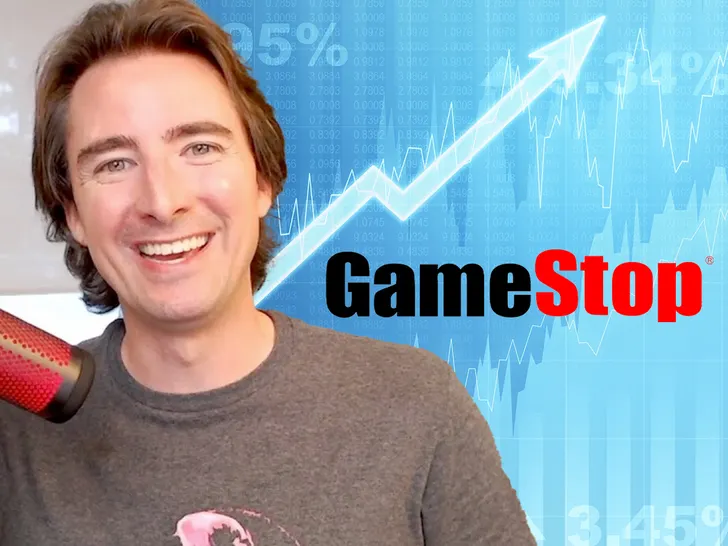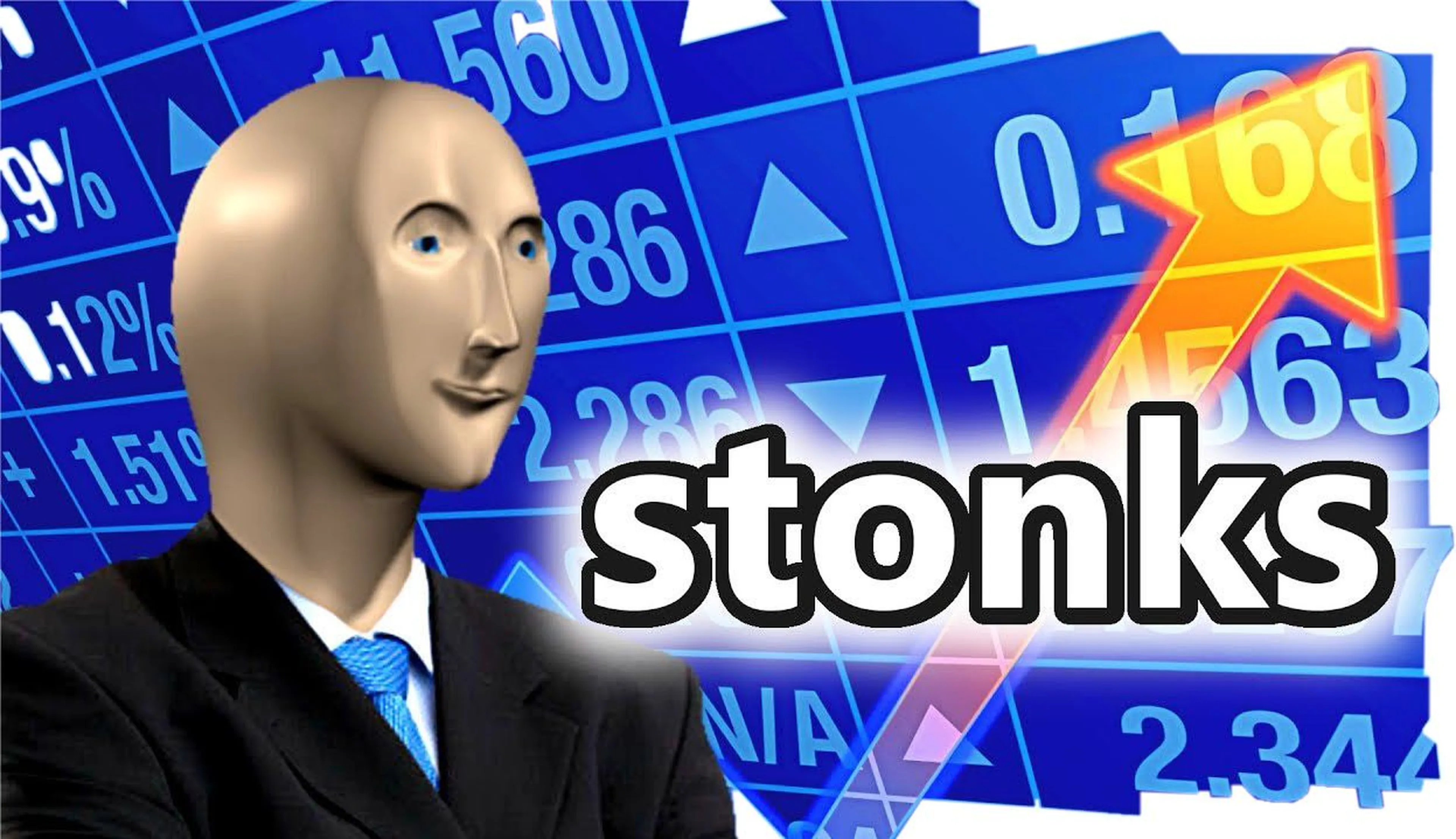What came first, the Surge or the Meme? Gamestop Surges Again: Examining the Factors Behind the Latest Market Frenzy
What came first, the Surge or the Meme? Gamestop Surges Again: Examining the Factors Behind the Latest Market Frenzy
By Katie Gomez
The volcano that remained dormant for three years and was informed never to be active again, otherwise known as Gamestop stock (GME), erupted last week. Although we know that, as traders, the market is constantly rising, falling, and changing, We are familiar with such explosions; the magnitude of this eruption was different, and it’s bound to leave some aftershocks. Due to the extreme history of GME back in 2021 and the role the media played in its explosion in the market, this time around, people are ready to point the finger at memes, reddit threats, and influencers who led the charge last go around, such as Roaring Kitty. Did the stock surge influence the memes, or vice versa?
The impact of social media on investor behavior has become increasingly evident in recent years, with platforms like Reddit, Twitter, and YouTube allowing for the rapid dissemination of information and ideas among large groups of retail investors, which led to the rise of “meme stocks.” The GameStop saga has become a prime example of this phenomenon, with the company’s stock price being heavily influenced by the opinions and actions of prominent social media figures like Keith Gill and the collective enthusiasm of retail investors on platforms like r/WallStreetBets. This article will review social media’s impact on Gamestop’s journey and its recent market surge that left investors on the edge of their seats.
History Repeating Itself?
Even those who weren’t involved in the stock trading scene at the time likely have heard of Gamestop and the frenzy its stock invoked circa 2021. To recap, Gamestop was essentially labeled DOA by most investors, reflected by its price and action in the market; like Blockbuster, it died before its doors even closed. However, in early 2021, most investors began investigating GME before calling the time of death. When they did, they found an astronomical short float percentage, leaving them dumbfounded about how this stock is where it is.
Although many saw it, only a handful decided to follow their curiosities and invest. This initial group that made significant profits was the retail investors who bought the stock early and held it as the price surged. These investors, many of whom were part of the Reddit community r/WallStreetBets, recognized the potential for a short squeeze and invested in GameStop stock. As the price continued to climb, many short-sellers were forced to buy back the shares they had borrowed at a much higher price to close out their positions, leading to substantial losses. This process, known as “covering,” further drove up the stock price, benefiting the retail investors who had bought the stock early. Could this be happening again?
The Role of “Roaring Kitty” and Social Media

The recent surge in GameStop’s stock price cannot be fully understood without examining the influence of social media, particularly the role played by Keith Gill, better known by his online alias “Roaring Kitty.” Gill, a former financial educator and retail investor, gained a significant following on YouTube and Reddit, where he shared his analysis of GameStop’s stock and his bullish outlook on the company’s prospects. During the initial GameStop frenzy, Gill’s videos and posts on the r/WallStreetBets subreddit were widely credited with sparking the massive surge in the company’s stock price, as countless retail investors bought into his thesis and invested in the stock.
Gill has been responsible for the tweets heard around Wall Street, influencing the surge of meme stocks such as Gamestop, AMC, and Blackberry, and has resurfaced after a nearly three-year hiatus. He has been with Gamestop since the beginning, from his comical yet influential videos YouTube videos in 2021.
His tweets were brief and enigmatic, featuring images and emojis that left much open to interpretation. One tweet showcased a picture of a GameStop store with a rocket emoji, while another simply displayed a screenshot of his trading account showing significant gains. Another tweet was posted after Gamestop’s split stock announcement of a McDonald’s ice cream cone with a frog emoji, which many interpreted as a cryptic message suggesting that he was still bullish on GME after the company announced the stock’s 4-for-1 split.
Then, just weeks ago, Gill recently came out of dormant status and became active on Twitter again, tweeting images and clips from popular movies and TV shows, such as “Ferris Bueller’s Day Off,” “V for Vendetta,” and “Breaking Bad.” He also posted a meme of a man leaning back, bored playing a video game, then leaning forward in anticipation, which many interpreted as a message to those still invested in Gamestop that despite the company’s financial struggles and market dormancy, the game is not yet over.
Many retail investors actively involved in the meme stock trade in 2021 saw his reemergence as a signal to reassemble and coordinate their efforts. Social media platforms like r/WallStreetBets on Reddit and various Discord channels dedicated to meme stocks were flooded with discussions, memes, and calls to action as investors sought to capitalize on the renewed momentum behind GameStop, AMC, and BlackBerry. The ensuing buying pressure from retail investors, coupled with the fear of missing out (FOMO) among those sitting on the sidelines, led to an immediate surge in all three.
GameStop, AMC, and BlackBerry: The Meme Stock Trinity
The impact of Keith Gill’s tweets was most pronounced on the share prices of GameStop but also influenced the other meme stocks making up the holy trinity: AMC and BlackBerry. At the start of last week (May 13th), GameStop, the original meme stock that started it all, saw its shares close up 60% on Monday and continue to rise by 120% in pre-trading Tuesday morning. As of Tuesday, GameStop’s stock was up more than 126% since last year, demonstrating the lasting impact of the meme stock frenzy.

The resurgence of the meme stock trinity following Gill’s tweets has come at a significant cost for short-sellers betting against these companies. By midday Tuesday, GameStop short-sellers had lost almost $2.2 billion, according to data from S3 Partners, a financial analytics firm. This staggering loss highlights the potential risks those who choose to bet against meme stocks face in the face of overwhelming retail investor sentiment.
The meme stock trinity’s resurgence following Keith Gill’s cryptic tweets demonstrates the enduring power of social media and the influence of key figures like Roaring Kitty in shaping retail investor behavior. As the lines between traditional fundamentals-based investing and social media-driven speculation continue to blur, the meme stock phenomenon remains a force to be reckoned with in the ever-evolving landscape of modern finance, even in the face of the underlying companies’ financial challenges.
Not only does this prove that this mania of stock surges has resulted from meme post prediction, but it also opens the door for the media to wield more power in the stock market than ever before. That said, the GameStop saga has also reignited discussions about the need for greater regulatory scrutiny of the stock market, with some experts arguing that the current system is ill-equipped to handle the challenges posed by the rise of meme stocks and the increasing participation of retail investors.

In conclusion, the recent resurgence of meme stocks like GameStop, AMC, and BlackBerry, fueled by the cryptic tweets of Keith Gill, aka Roaring Kitty, has once again highlighted the complex and rapidly evolving nature of the modern stock market. As social media continues to play an increasingly influential role in shaping investor sentiment and behavior, regulators and policymakers face the challenge of ensuring market stability and fairness for all participants.
While the long-term implications of this new era of social media-driven market movements remain uncertain, one thing is clear: investors must be keenly aware of the risks and potential rewards associated with investing in meme stocks. If left unchecked, the growing influence of social media on financial markets could lead to the formation of unsustainable bubbles, similar to the short squeeze witnessed in 2021. As such, it is crucial for investors to approach meme stocks with caution, conduct thorough research, and make informed decisions based on a comprehensive understanding of the underlying companies’ fundamentals and the inherent volatility of the meme stock landscape.
For more on this topic, follow this link to one of our Trade Ideas Experts, Michael Nauss, on how this meme stock trade revival can shake up the market going forward and lead to a repeat short squeeze.
